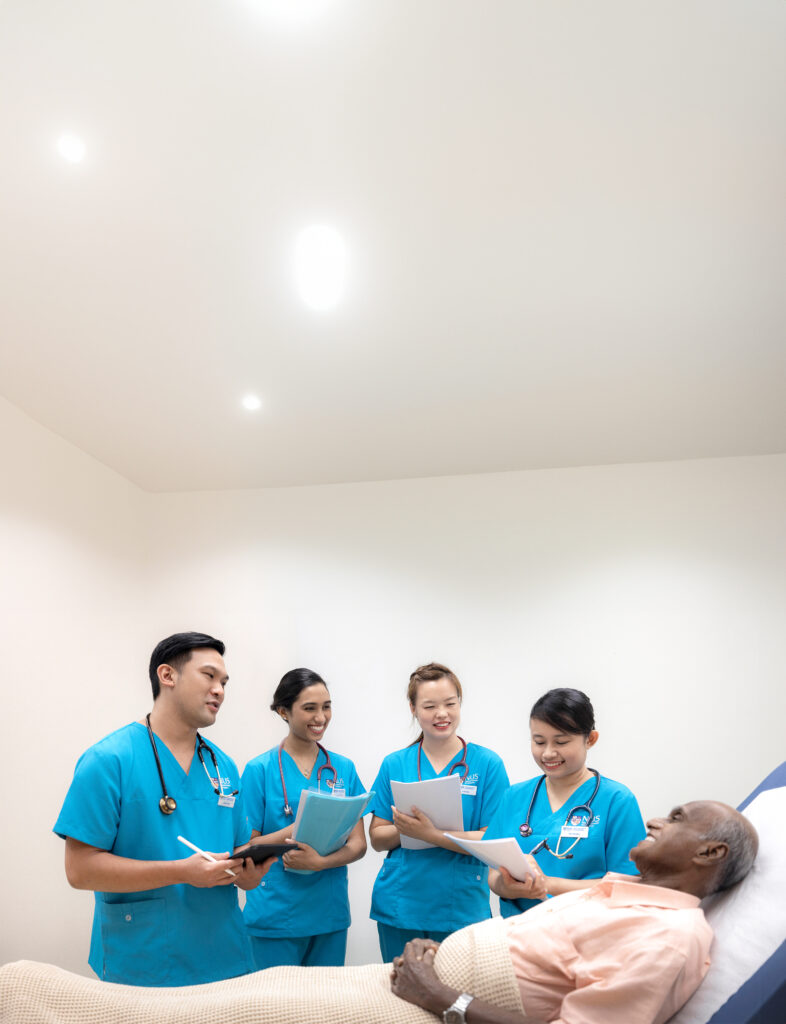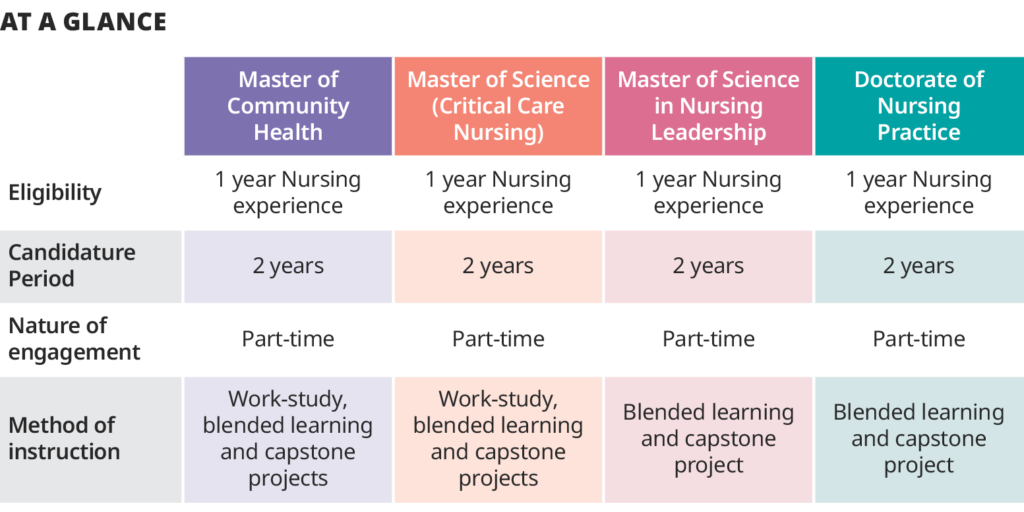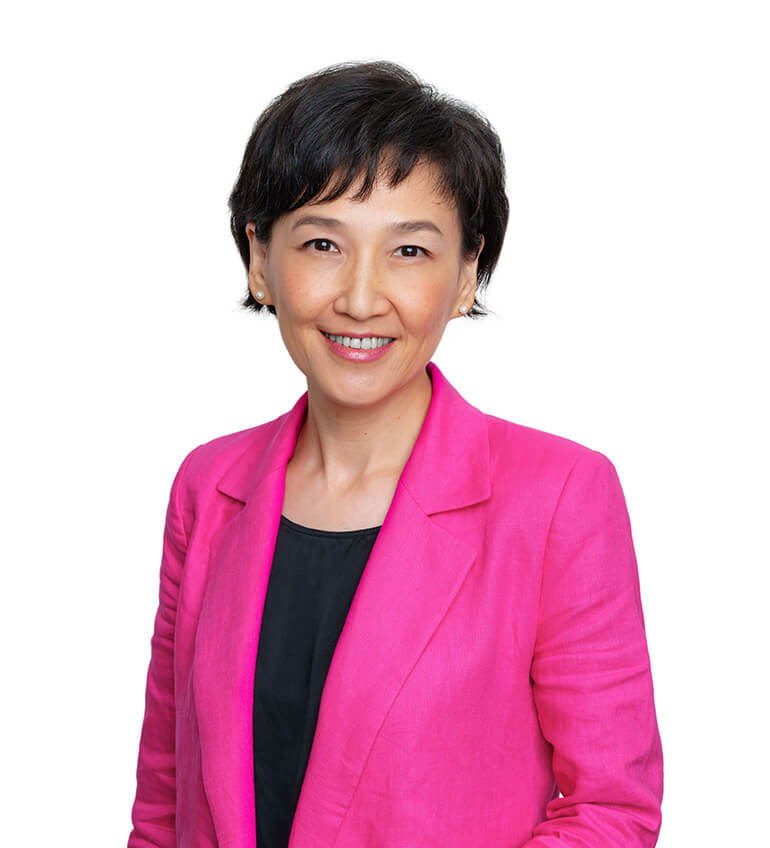
One in 4 Singaporeans will be aged 65 and above by 2030. The implication is that Singapore would need to not only increase the size of our Nursing workforce significantly, but also ensure that nurses are well-skilled to handle patients presenting with complex health issues.
The Alice Lee Centre for Nursing Studies (NUS Nursing), National University of Singapore Yong Loo Lin School of Medicine, proactively introduces relevant programmes to ready nurses for challenges presented by Singapore’s ageing population and actualise their aspirations for career growth. Over the next few months, nurses looking to enhance their skills and grow their careers can enrol in 4 new graduate programmes that NUS Nursing is launching.
Answering the Call to Fulfil Industry Needs
The Master of Community Health and Master of Science (Critical Care Nursing) programmes will welcome its first cohort of students come August 2024. Director of Education and Programme Director for Master of Nursing, Associate Professor Zhou Wentao said, “There is a demand for these two programmes from the industry. That prompted us to explore the feasibility of leveraging the work-study model and incorporating it into these programmes. This is the first time we are piloting the work-study model—and if it is successful, the Ministry of Health (MOH) intends to extend it to other programmes in the future. To pave the way for that, we made it a point to engage all healthcare clusters when planning the curriculum.”
A/Prof Zhou continued, “As the name ‘work-study’ suggests, a big part of the training will take place at the nurses’ workplace with facilitation by clinical tutors/faculties on the ground—so students will be learning at the bedside, in a real-world environment. This learning will then be complemented by in-class training.”
Both programmes are part-time with a 2-year candidature period. In addition, they offer a stackable pathway from graduate certificates, namely the Graduate Certificate in Integrated Health for the Master of Community Health and the Graduate Certificate in Critical Care Nursing for the Master of Science (Critical Care Nursing). “We recognise that some students are only looking to build specific skill sets. That is why we offer a comprehensive pathway where learners have the choice to stop after completing the graduate certificate coursework or stack up their credits and go all the way to complete their Masters,” A/Prof Zhou explained.
For the pilot run, National University Hospital has committed 23 students for the Master of Science (Critical Care Nursing) programme. Similarly, Alexandra Hospital will be sending 20 nurses for the Master of Community Health programme.
Taking the Lead to Empower Career Aspirations
Two other new programmes that nurses can look forward to from NUS Nursing are the Master of Science in Nursing Leadership and the Doctor of Nursing Practice (DNP). Both programmes will be 2-year long and available on a part-time basis.
“We have many good nurses on the ground in different healthcare settings who unfortunately are not offered sponsorship for the Master of Nursing programme (Advanced Practice Nurse)—but they are keen to develop and grow themselves. Previously, this group of nurses would have to go overseas because we did not have a Master’s programme for them. Now with the Master of Science in Nursing Leadership—they can upgrade themselves while remaining in our workforce,” A/Prof Zhou said.

Nurses signing up for the Master of Science in Nursing Leadership can expect to learn about clinical leadership, and how to lead research through clinical input. A/Prof Zhou elaborated, “In a nutshell, learners will be exposed to selective modules from the Master of Nursing which hone their clinical skills and knowledge, as well as the Master of Science (Nursing Research), which equips them with research knowhow.”
Continuing, A/Prof Zhou said, “And for those with the inclination to go further after completing the Master of Science in Nursing Leadership, they can consider going on to the DNP.”
Currently, NUS Nursing offers the Master of Science (Nursing) and the Doctor of Philosophy (PhD) for nurses who are interested in becoming clinician-scientists. For others, the pathway for advancement is limited. “Inadequate growth opportunities and recognition are 2 main reasons cited for people wanting to leave the Nursing profession. With the DNP, we are looking to change that,” A/Prof Zhou shared. “Additionally, we are also looking to fill a gap. The research and knowledge generated by the PhD is great—but we are lacking experienced people to translate these discoveries into the clinical settings and healthcare system. Soon, nurses studying DNP can lead the implementation.”
A/Prof Zhou added, “Besides equipping nurses with the ability to apply structured system thinking and carry out evidence-based implementation, the DNP programme aims to empower our nurses to take on higher leadership roles such as hospital management, and even contribute towards policymaking.”
To enable that, NUS Nursing is collaborating with NUS Business School and NUS Saw Swee Hock School of Public Health. “NUS Nursing will engage expertise to guide our students to understand and translate the evidence-based practice implementation—process, auditing and proper and sustainable implementation. Meanwhile, our collaborators from other schools would provide training in areas such as finance and business management, or policy change management and making,” said A/Prof Zhou.
Advocating for the Nursing Profession
Concluding, A/Prof Zhou said, “Singapore’s healthcare landscape is undergoing a transformative change to prioritise public and population health. As the backbone of hospitals and the healthcare system, nurses naturally play a significant role. This has happened in many healthcare institutions, but we need more nurses who can articulate concepts of holistic care and health better via education and peer influence. We definitely need inspired nurses who can advocate for the Nursing profession.
“With the suite of new graduate programmes, we hope to not only train nurses to be proficient in their skills, but also provide them with opportunities to develop critical thinking and diverse capabilities so that they can lead others—and possibly shape our healthcare and profession with meaningful policies.”




